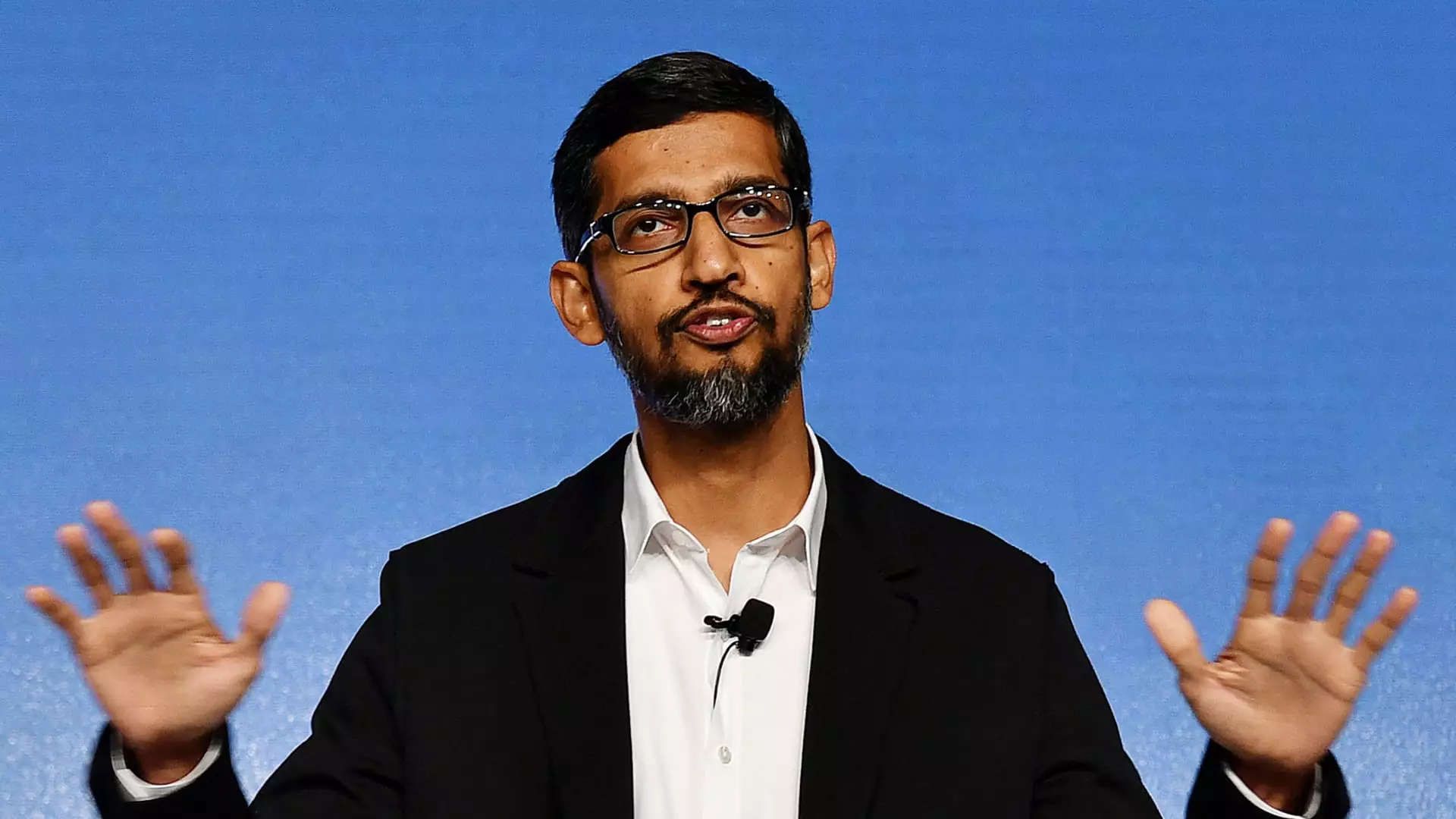In the realm of technology giants, Google stands out not only for its cutting-edge innovations but also for its complex internal culture. Recently, the company has come under scrutiny for its measures to control political conversations among employees, particularly during the lead-up to major elections in the United States. This move has sparked debates regarding free speech, workplace culture, and the broader implications of moderating internal discussions in a diverse workforce.
The Context of Internal Moderation
As the United States gears up for elections, Google’s leadership, notably CEO Sundar Pichai, has issued directives aimed at maintaining a politically neutral environment within the company. These directives have taken the form of warnings to employees regarding the discussion of political opinions and statements, particularly on their internal forum known as Memegen. Pichai’s memo emphasized Google’s commitment to being a credible source of information, underscoring the need for the company to remain a trusted entity amidst varying political landscapes.
This facet of Google’s internal culture is not new. Since 2019, the company has enforced policies that discourage degrading or inflammatory political discourse among employees. These rules have generated significant employee pushback due to their ambiguity and perceived overreach into personal expression. Moving beyond mere reminders, the company has ramped up efforts to prevent political discussions from seeping into the workplace, raising questions about the boundaries of employee expression in corporate settings.
The tightening of policies around political discussions marks a substantial shift in Google’s corporate culture. Employees argue that the restrictions hamper open discourse, essential for workplace diversity and creativity. The environments of tech companies usually thrive on the free exchange of ideas, yet Google’s management appears to adopt a more paternalistic stance, believing that unmoderated discussions could hinder the company’s overall function and image.
This creates a paradox; while fostering an inclusive workplace is essential, excessively limiting discussions can alienate employees, especially those with unique perspectives or those feeling marginalized by the restrictions. The ongoing debate is whether such measures genuinely serve to protect the workplace or if they ultimately stifle the very dialogue that could foster understanding among differing viewpoints.
Google’s enforcement of these policies has tangible effects, as illustrated by a recent incident involving employee posts critical of Google’s involvement in Project Nimbus — a controversial contract with the Israeli government. This has led to heightened tensions, revealing that internal dissent is alive and well at Google, despite the company’s attempts at moderation.
Moreover, Google implemented enhanced governance on Memegen, preemptively banning content deemed politically sensitive. Internal documents revealed that Memegen would no longer permit posts related to personal political opinions or geopolitical matters, indicating a broader trend of tech companies seeking to complexly navigate the intersection of politics and corporate responsibility.
The ambiguity surrounding “violative content” raises concerns among employees as to the arbitrariness of moderation decisions. Many felt their harmless posts were taken down, leading to frustrations and a sense of disconnection from company culture. This moderation could be perceived as a silencing mechanism rather than a protective one, especially as employees express that their memes were often supportive or humorous in nature rather than overtly political.
As Google’s policies unfold, the ramifications go beyond internal dynamics. This situation prompts a broader reflection on how technology firms engage with societal issues and the role of corporate governance in the age of social media. Companies like Google possess unprecedented power to shape discourse, and their prioritization of neutrality might be seen as a passive approach to pressing global concerns.
Indeed, other tech giants are likely watching closely, as the equilibrium between maintaining company image and ensuring employee satisfaction becomes increasingly precarious. Additionally, the use of AI to monitor discussions introduces ethical dilemmas about privacy and oversight in workplace environments.
Google’s efforts to moderate internal political discussions shed light on the challenges tech companies face in fostering a conducive work environment. While maintaining a politically neutral workspace is essential for many organizations, striking the right balance between moderating discourse and encouraging open dialogue remains a critical question for the future. The response from employees will be paramount in determining whether such strategies fortify a healthy corporate culture or engender dissatisfaction and disengagement.

